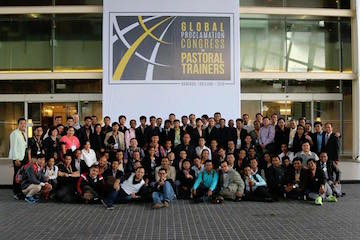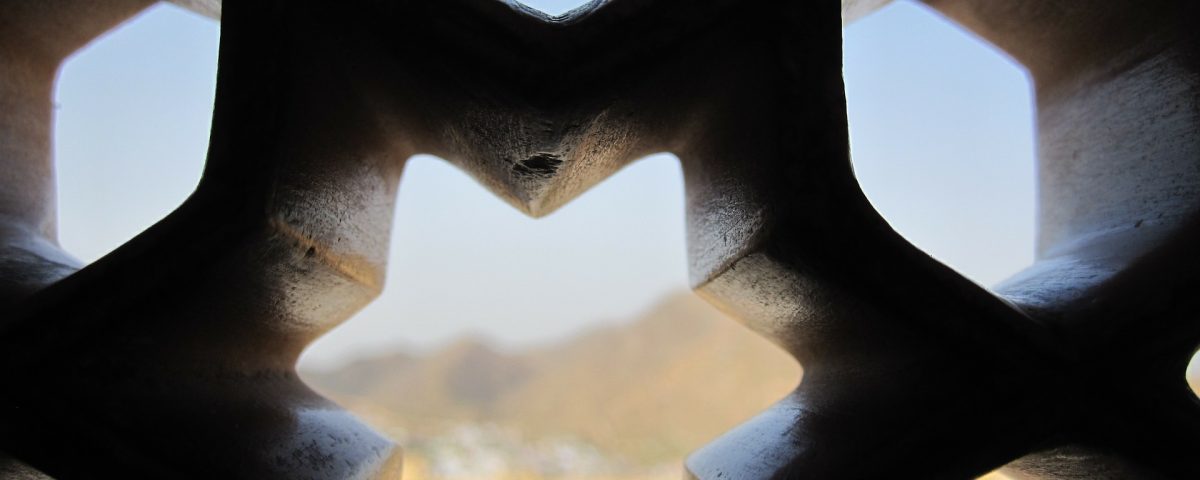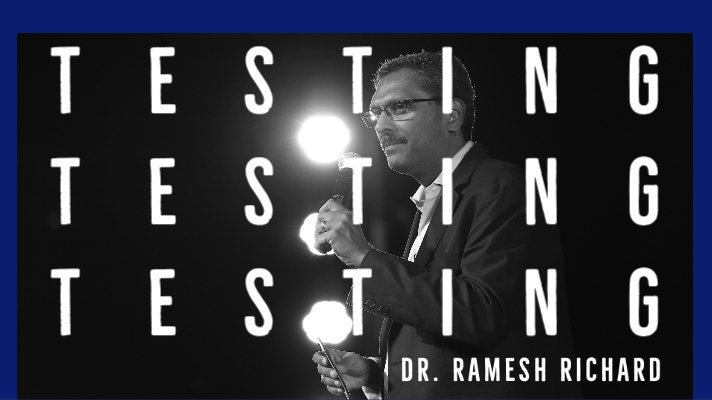
Reproducing Disciple-Making Leaders
June 8, 2017
The GProCongress for Pastoral Trainers: One Year Anniversary
June 15, 2017Spiritual Leadership through an Eastern Lens

by Jeremy Dawson
I’ve grown up in India and I’ve been exposed to so much of leadership right from Grade 1 all the way through school and beyond. I continued to study leadership in college through courses and seminars. One never stops thinking about leadership, as you continually ask yourself, how do you influence people in mass? How do you make a change within a community, a nation, or bring about changes in world events and life styles? Being educated both in India and abroad, one begins to see the difference between leadership from the Western mindset through the Western lens and the Eastern mindset through the Eastern lens. One draws a conclusion that there is, in fact, a huge difference because of the philosophical understanding of how influence occurs.
In the East, honor and respect are vital components of leadership; while one would tend to think that is the same case with all leadership world-wide, however it is far more obvious and visible in the Eastern mind set. Honor and respect have to do with recognizing the wisdom and experience of the years or age; of gray hair. When leaders have been through seasons of their life and have gathered both experience and knowledge about life their admonishment of ‘This is respected’, ‘this is well received’ is followed by the next generations. This is not necessarily the case all over the world but in the Eastern mind set, leadership requires that kind of experience.

Leadership is not just anyone leading anyone, at any time and anyone who can take someone two steps further. It has been watered down and drained of its significance. Some would even dare to say that everyone is a leader since everyone leads in some way or the other. We are not talking about that kind of leadership, we are talking about leadership that warrants respect and honor. This comes from age, standing the test of time, a record of good decisions, of steadfastness and faithfulness; and good stewardship of that influence: that is leadership. This is awarded from one generation to another and is expected that it is maintained. So, respect and honor are not earned and deserved, they are gifted to those who have gone before.
A second aspect of leadership that is very significant to the Eastern mind set is authority. If any and everything that a leader says can be questioned that is not a sign of bad/ poor leadership! It is a sign of bad / poor followship; it is the unwillingness to trust a leader. Now this flows from the previous qualification for if there have been years of experience and a record of good stewardship of influence and a record of good decisions, then why would any and everything be questioned? So, based on that assumption and the fact that the authority is in the hands of the leader, a great degree of submission is warranted.
The Eastern Leader operates very heavily on respect and on authority. He executes this with far greater confidence than the Western leader in my experience. Eastern leaders lead from behind, they throw a voice out and lead the minds of people. They are far more opinion leaders, emotional leaders and faith leaders. They influence the faith, belief, mindset of a person and they influence the opinions of people, whether few or many makes no difference, the method of leadership is influence- strong.
Systems are questioned, thinking patterns are questioned, one is encouraged to think through outcomes. The focus is not on outcomes in terms of results and targets and numbers. In the Eastern mindset, leadership does not necessarily model what it is pointing people to, because leaders in essence are vision ary thinkers and philosophers. So sometimes there is not much of personal experience; for example- a highly educated IT individual, doctor, surgeon or highly place government official will still reach out to his guru, his priest or his religious leader for wisdom and guidance. A man with two Master’s degrees will sit at the side of the street and have his palm read or have his stars interpreted by someone who is not ahead of him education wise. So, leadership is not necessarily influenced by modeling the selfsame activity from up in front. Leadership often in the Eastern mind set comes from those who give a broader picture of where life should be taking you and what are the things holding you back from accomplishing your dream.
ary thinkers and philosophers. So sometimes there is not much of personal experience; for example- a highly educated IT individual, doctor, surgeon or highly place government official will still reach out to his guru, his priest or his religious leader for wisdom and guidance. A man with two Master’s degrees will sit at the side of the street and have his palm read or have his stars interpreted by someone who is not ahead of him education wise. So, leadership is not necessarily influenced by modeling the selfsame activity from up in front. Leadership often in the Eastern mind set comes from those who give a broader picture of where life should be taking you and what are the things holding you back from accomplishing your dream.
Now when we take the whole concept and apply it to the church and spiritual leadership, the pastor or spiritual leader is called to be a man of God, to step back and to look at life as a whole and to guide not just in modeling activities, like an apprentice would follow his master, but to help people see why they do what they do and how their method and motives either add to or take away from their general wellbeing.
So, all in all there is a very deep spiritual well that one draws from when one thinks of leadership from an Eastern lens. It is not that they want someone better at the same thing they do. People are willing to listen and submit; they are willing to follow, they willing to do anything in order to be sure what they are laboring over, what they are investing their time and energy into, is going to bear fruit in the overall wellbeing of their lives and their future. I should even dare to say that Eastern leadership points far greater into the future than it does with its counterpart in the Western world, the ancient world or even the modern world. It has not a whole lot to do with the here and now or the future. It has to do with directions and without that compass the Eastern minded person will even question whether it is leadership at all, when direction is neither the final outcome nor the greatest influence.

This significant difference influences the Servant-Leader paradigm. It fleshes out very differently within Eastern communities, families and governments. Servant Leadership does not necessarily resort to menial tasks or the abrasion of power and authority. Servant Leadership is defined rather as the human stewardship of the authority and submission that Eastern communities afford it. A leader who does not abuse the gifted influence and power he has over a large number of people, but in contrast serves their purposes, dreams and needs and is deeply respected, honored and rewarded with loyalty.


